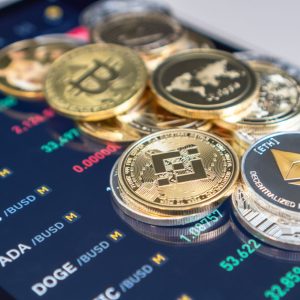Latest Posts
40% surge in UK crypto ownership spurs HMRC crackdown: What You Need to Know
Read MoreHow the political shifts in 2024 could reshape crypto tax policies in 2025
Read MoreGary Gensler steps down as SEC Chair – what’s next for crypto?
Read MoreUK plans to integrate crypto into finance
Read MoreWhat Trump’s win could mean for crypto
Read MoreContent
Introduction
In a significant financial move, Robinhood, the popular cryptocurrency and stock trading platform, has acquired over 55 million of its own shares from the US government.
These were previously held by Sam Bankman-Fried, also known as SBF, the former CEO of FTX.
The Repurchase
This purchase, valued at approximately $606 million, comes on the heels of regulatory approvals and legal proceedings.
The shares, originally owned by Bankman-Fried and Gary Wang through Emergent Fidelity Technologies, were seized by the U.S. Department of Justice in January.
The repurchase was widely anticipated, with Robinhood’s board of directors approving the deal in the company’s Q4 2022 report. Approval from the U.S. District Court for the Southern District of New York, free from any claims or encumbrances, was granted on August 30th. The acquisition agreement was made with the U.S. Marshals Service.
Robinhood’s Response
Jason Warnick, Robinhood’s Chief Financial Officer, expressed satisfaction with the completion of the purchase, emphasizing the company’s commitment to its customers and shareholders.
This acquisition follows the bankruptcy filing of Emergent Fidelity Technologies in February, a move triggered by legal disputes and complexities.
These legal battles involved crypto lending firm BlockFi, which had pledged the 55 million Robinhood shares as collateral, and creditor Yonathan Ben Shimon. Bankman-Fried’s legal team had argued that the assets were necessary for his criminal defense.
Currently in custody since his bail was revoked on August 11th, Bankman-Fried is slated for his first trial on October 3rd.
Market Response
The purchase had a positive impact on Robinhood’s stock price, with shares on Nasdaq increasing by approximately 4% following the announcement, from $10.85 to $11.34 at the time of this publication.
Conclusion
While China’s approach to cryptocurrencies has undergone shifts, the recent report highlights the nuanced and evolving legal landscape surrounding virtual assets in the country.
As discussions continue, these developments could play a crucial role in shaping the future of digital assets within China’s regulatory framework.






